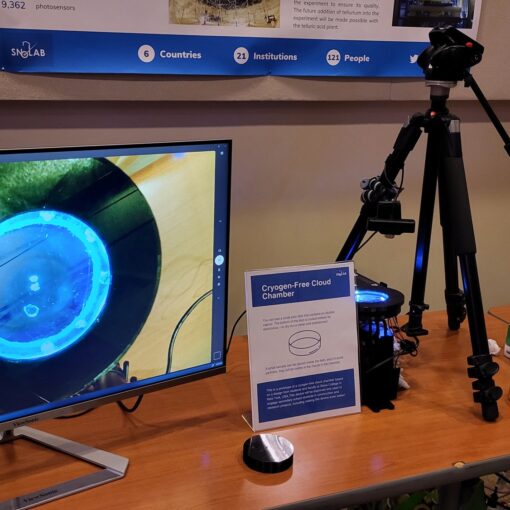Tonight I have a bittersweet occasion to attend. My long-time friend and colleague, once my graduate school apartment mate in Geneva during my first summer at CERN and then my grad school office mate, is saying farewell to the U.S. physics community and going to Switzerland. Like many, many other particle physicists, theorists and experimentalists alike, he is going to be at the heart of particle physics for the next 20 years: the Large Hadron Collider. Europe, and especially CERN, will be the new global hotbed of progress in understanding the building blocks of the universe, and thus understanding the universe itself. You can see it all around. Fewer and fewer of my colleagues are at SLAC anymore, more of the burden of operating U.S.-based experiments is falling on fewer shoulders, and we all wait to see if the Large Hadron Collider even works.
It’s bittersweet. I want us to all make more progress in understanding the universe. I also understand that the U.S. can’t always be the center of attention. But at the same time, I see a dangerous trend, one marked by this exodus. Other markers abound: the homogenization of the American mind by the “No Child Left Behind” act, the underfunding of fundamental science over the last decade by our Federal government, the change of laboratories like SLAC from fundamental to applied science, the shunning of cutting edge science like stem cell research and the continued stonewalling against climate science by the Federal government. The dumbing of America continues, as consumers gobble up heaping spoonfuls of crap in reality TV, as women like Ms. South Carolina can still be third runner up in a major contest because brains count little over beauty.
Yet I know that Americans are hungry to learn. Witness the growing furor over what was known and unknown before making a decision like going to war. Witness the attention paid to science specials, and the popularity of shows like “Mythbusters” and “Planet Earth”. Witness the mounting frustration in many school systems over federally imposed “teaching to the test” rather than the inculcation of innovation, something which has long fueled the engine of America. Witness the flocks of people who come to Fermilab and to SLAC to learn what they do, and why they do it. There is much hope for the future of fundamental science in this country.
I recently heard a student remark that they have looked at those who are going abroad to Europe to work on the LHC, and those who are staying behind to drive physics in this country, and that she’s relieved to see that the local community is in good hands. I don’t know as I completely agree with that – certainly, I feel that for now we have bid farewell to many worthy gatekeepers of this field – but it’s pleasant to think that maybe if it’s true, American physics doesn’t have to die without a real fight.




